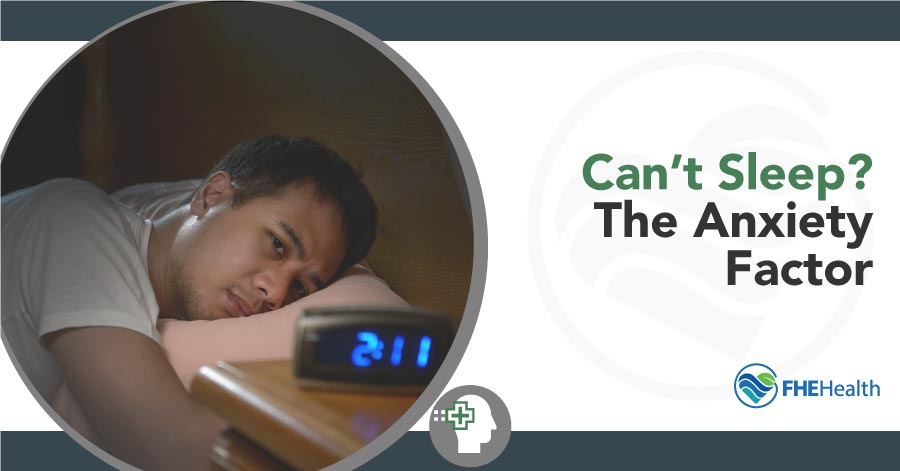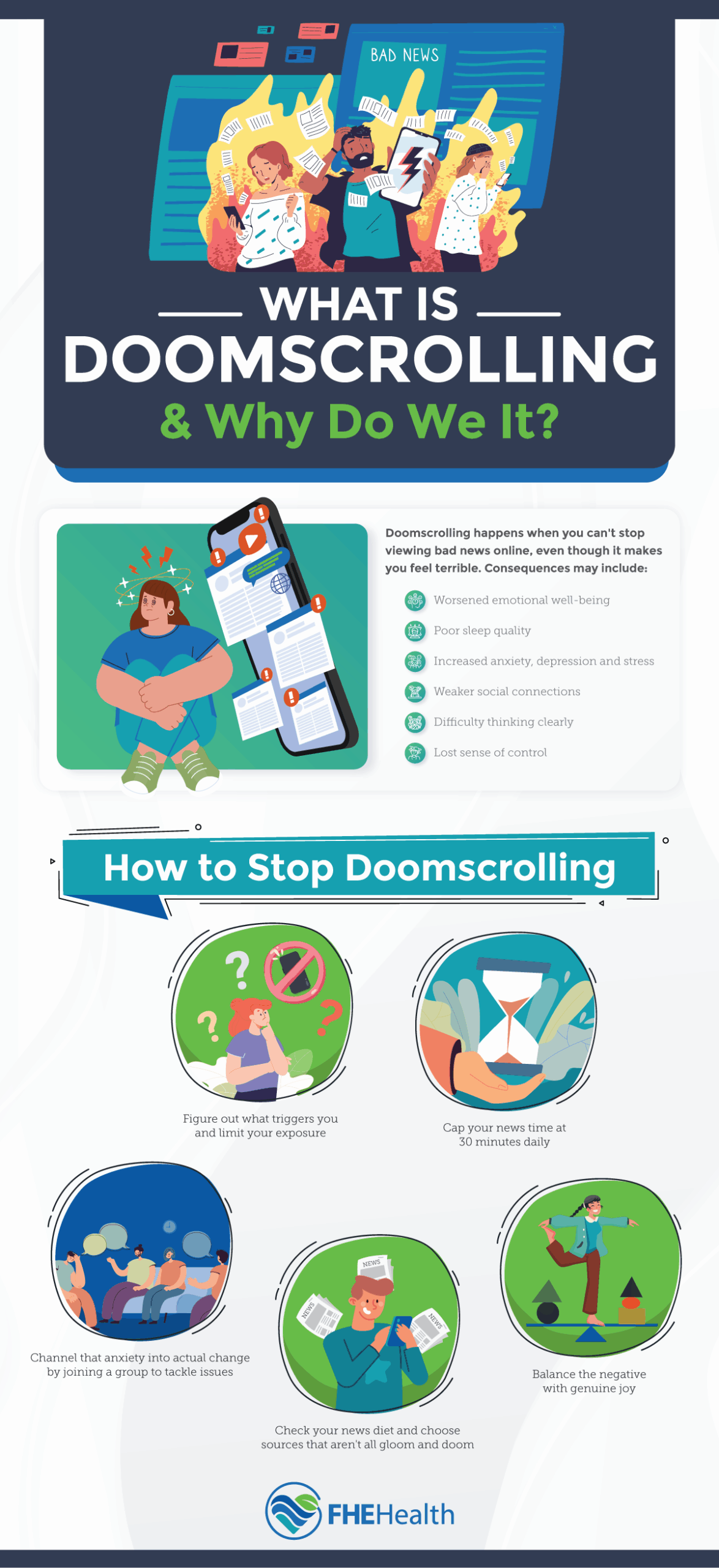
A good night’s sleep can have positive benefits for your physical and mental health. Unfortunately, many people with mental illnesses such as anxiety can find it difficult to get the quality and volume of sleep they need. Everyone experiences some anxiety at times, causing some worry and fear about life stresses. An anxiety disorder is more complex, as the worry doesn’t go away even when the stressful event has ended. An anxiety disorder can get worse over time and hurt the quality of life. Anxiety disorders are the most common mental illness Americans face, with almost 20% of the U.S. adult population experiencing them each year. The good news is that anxiety disorders are also some of the most treatable mental illnesses.
Sleep disorders like insomnia and sleep apnea are also highly prevalent in the U.S., with 50 million to 70 million adults having one. Not getting enough sleep is a common issue, with 37% of 20-to-39-year-olds struggling with a lack of sleep, increasing to 40% of 40-to-59-year-olds.
Can Anxiety Keep You From Sleeping?
Quieting your mind before bed can be challenging for everyone, but it’s especially common if you have an anxiety disorder. Research shows that adults with mental health disorders such as anxiety are more likely to also have a sleep disorder such as insomnia. Insomnia can make it difficult to not only fall asleep but to stay asleep. Some people with anxiety have trouble falling asleep, staying asleep, or both. The worries and fears that cause people with anxiety to wake up in the middle of the night can be some of the most intense they face. Everything feels darker and scarier at 3 a.m., making it challenging to settle back down when your mind and body are racing.
Having trouble falling asleep, or sleep-onset insomnia, is the most common form of insomnia experienced by younger adults. Sleep maintenance insomnia, or difficulty staying asleep, is more common for those who are older. That being said, those with anxiety may find themselves struggling with both forms of insomnia.
Some adults with anxiety can even wake up having a nocturnal panic attack, which can be particularly disruptive to their sleep. Being launched awake into feelings of doom and hopelessness with a pounding heart, sweating, clamminess and more can make it nearly impossible to calm down and achieve a restorative rest.
Early waking is another form of insomnia that’s more prevalent in older adults. While it can be beneficial to be a morning person and get up at a productive time of day, there’s such a thing as too early, with some people finding themselves up at 4 a.m. and reluctantly starting their day.
Sleep apnea can also be connected to mental health conditions, including anxiety. This condition can cause you to stop breathing for periods during sleep and even lead you to wake up gasping for air. Beyond being disruptive to the quality of your sleep itself, sleep apnea can also increase your anxiety around sleeping and leave you extra tired during the day.
Can I Have Anxiety About Sleeping?
When anxiety erodes the quality of our sleep, we can start to have anxiety about sleeping itself. This is called sleep anxiety. When you have a negative experience, it’s normal to want to avoid that experience. But when the bad experience is a daily necessity, that avoidance can make anxiety even worse. Having sleep anxiety means you’re in a nasty cycle of poor-quality sleep that leaves you waking up anxious and then dreading having to go to sleep again, which makes for another restless night. Common sleep anxiety symptoms can include:
- Concentration issues
- Digestive issues
- Restlessness
- Nightmares and/or night terrors
- Twitches
As sleep anxiety progresses, it can become increasingly intense as you become even more tired and your anxiety keeps you worrying about sleep. Some people even experience panic attacks as they face bedtime, in anticipation of another night where sleep is elusive and anxiety takes over the mind and body.
Can My Age Affect My Sleep?
As we age, we can also find ourselves facing an increased likelihood of sleep disorders such as sleep apnea and insomnia. Some older people can also develop movement disorders such as restless leg syndrome that disrupt their sleep. It’s common for older adults to get sleepy in the evening and fall asleep easily but then struggle to stay asleep. They’re also prone to early waking insomnia and not being able to get back to sleep in the early morning hour.
Women who are experiencing perimenopause or menopause or are post-menopausal may also be coping with sleep disorders brought on by this transition. During menopause, hot flashes can be a common cause of unwanted awakening in the night and difficulty getting back to sleep. A fluctuation in hormone levels may also lead to the development of sleep apnea. Additionally, it’s common to be dealing with depression and/or anxiety at this life stage, increasing the likelihood of having sleep anxiety.
Can I Get By With Less Sleep?
While some people may boast about how little sleep they need to function, the reality is that most of us need at least seven hours of sleep per night. Getting less than seven hours can increase your overall anxiety and worsen your anxiety symptoms. This impacts your overall quality of life, as you may struggle to manage your emotions, fulfill your commitments, and show up the way you want to in your personal and professional lives. A lack of sleep can also be dangerous in cases where being awake and alert is essential, such as when caring for children or driving a vehicle. Research has shown that even the lost hour of sleep during the daylight savings time jump in the spring can lead to an increase in fatal car crashes.
Can Not Sleeping Affect My Health?
Unfortunately, a lack of sleep over a long period can have a significant negative impact on your health. Just like the connection between your anxiety disorder and a sleep disorder, many interconnected areas in your overall health and wellness can be affected by a lack of sleep. Some of the larger health issues associated with long-term sleep disorders can include:
- Depression
- Heart attack
- Stroke
- Obesity
- Diabetes
- Hypertension (high blood pressure)
Please keep in mind that this list is not intended to scare you or contribute to your anxiety about sleep. Instead, it’s a reminder of the importance of starting the journey to improve your sleep. The sooner you start addressing your sleep anxiety, the closer you may find yourself to better physical and mental health outcomes.
Can Alcohol Affect My Sleep?
While having a relaxing glass of wine or a beer before bed may seem like it’s helping you doze off, alcohol isn’t your friend when you struggle with sleep. Alcohol has a proven connection to insomnia and actively hinders sleep quality in multiple ways. The process of metabolizing the alcohol can wake you up in the middle of the night, opening the door for anxious thoughts to step in and ruin the rest of your night. If you had more than a couple of drinks, you may also face “hangxiety” the next morning, which is the intense anxiety experienced during a hangover. Even if you didn’t drink a lot, chances are high that you’ll feel sleepier the day after drinking.
Can I Improve My Sleep?
Overcoming sleep challenges that are interconnected with anxiety requires trying multiple solutions to find the fit that works best for you. Test-driving a variety of approaches and then giving them time to become effective is the key to finding what works in your life. Practicing good sleep hygiene is a good place to start.
Maintaining a consistent bedtime routine, even on the weekends, can help you train your body to know when to sleep and follow through on it. This can be frustrating at times and affect your social life, but taking care of your mental and physical health needs to be your priority to help you start feeling better. This routine can include having a warm bath, light stretching, or meditating before getting into bed at the same time each night.
Caffeine, nicotine, and alcohol are all stimulants that can interfere with your body’s natural sleep patterns. Limiting or avoiding them may help you fall asleep easier and stay asleep. Avoid them from at least four to six hours before bedtime.
Use blackout curtains to darken your bedroom and send the message to your brain that it’s nighttime and you need to sleep. This is especially helpful during the summer months when the sunshine starts early in the day and stays out until late evening.
Keeping your room at a cooler temperature helps your body have a better sleep. Our bodies naturally decrease their temperature during sleep as our metabolism slows down. Having a consistent nighttime room temperature around 65°F (18.3°C) can assist this process and enable your body to get to sleep and stay asleep more easily.
Having a TV in your bedroom or scrolling through your phone in bed can send the wrong message to your brain and keep you awake longer. Try to be screen-free at least 30 minutes before bed to minimize the blue light exposure that can delay sleep and negatively impact its quality. Instead, consider reading a book or listening to calm music to help you wind down. If the phone is too tempting, consider getting an alarm clock and keeping the phone outside the bedroom altogether.
Looking at the time on your phone or alarm clock can actually intensify your anxiety and make it harder to sleep. Turn the clock away from you or even put it in a place where you can’t see it at all to prevent yourself from sneaking a peek.
Exercise during the day can be a powerful tool in the struggle to get a better sleep. Work out earlier in the day for the best results, no more than four hours before bedtime. Consider trying morning walks to give you a natural boost of energy to kick off your day.
Eating a heavy meal or sugary snack close to bedtime can cause you to stay awake later or wake you up during the night. At the same time, not eating for hours before bed could leave you feeling hungry with a growling stomach. Try to ensure that you eat dinner hours before bedtime, and try a light snack that isn’t packed with sugar.
It can be tempting to nap when you’re exhausted, but anything more than a 20-minute siesta during the day will sabotage your efforts at bedtime. If you must nap, set an alarm to ensure you limit it to 20 minutes — and don’t hit the snooze button!
Yes, implementing these changes can be hard. Avoiding lengthy naps and lots of caffeine can be difficult when you might be leaning on them to get through your day. The sooner you implement these changes regularly, though, the closer you may get to reducing your insomnia and getting a restful sleep that helps reduce your anxiety.

Can I Get Help for Sleep Anxiety?
Trying to manage sleep anxiety and insomnia on your own can be hard, especially when you’re also navigating your anxiety journey. If you’re finding it challenging, FHE Health is here to help. Our residential treatment center is equipped to treat the underlying conditions affecting your sleep disorder and sleeping issues. Contact us today to get a better night’s sleep sooner.






